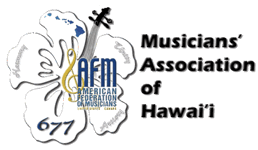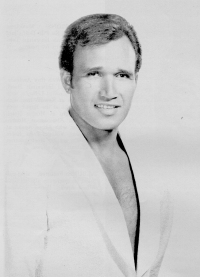Remembering a Mother and Son,
Hawaiian Legends of Music and Song
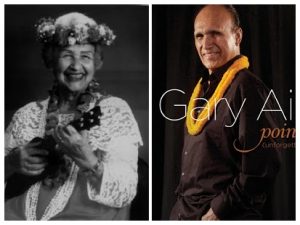
Black and white image of Aunty Genoa Keawe from Audrey Coleman’s feature on FolkWorks. Image of Keawe’s eldest son, Gary Aiko, from his 2012 “Poina ‘Ole ‘Ia (Unforgettable)” album on Spotify.
It’s not just talent, accolades and awards, big, important associations, or an impressive legacy that make an artist. It’s how you treat people, connect and give of yourself to your muse and audience, the tender, spirited ways you touched the keys in the songs of life.
“In addition to her unrivalled falsetto technique, bell-like yodeling, and her trademark ability to hold high notes for over two minutes, Genoa Keawe is particularly significant for her focus on presenting repertoire for the modern hula.” — Ethnomusicologist Amy K. Stillman from “A Hawaiian Musical Treasure” by Audrey Coleman, FolkWorks
“That’s her.”
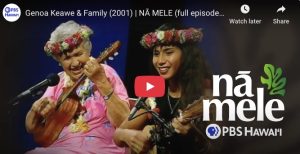
Image from Aunty Genoa Keawe & Family (2001), NĀ MELE (full episode) | PBS HAWAIʻI on YouTube.
Aunty Genoa Leilani Adolpho Keawe-Aiko could light up a room before she ever took the stage to gently strum her ukulele in time with ocean breezes, plumeria-scented trade winds, swaying palm trees in the paradise she and hers called home, while crooning Hawaiʻi’s own special brand of folklore in her lingering falsetto soprano, impossible high notes (ha’i), and European-inspired yodeling.
Born in 1918 in a Kaka’ako stable, Aunty Genoa saw history unfold before her very eyes growing up in the islands, including the fall and rise again of the proud Hawaiian culture and language.
Before (and after) WWII would change the world, she dipped her toes musically, touching greatness, performing officers’ clubs on military bases, Kailua bandstand shows, a KULA radio show with blind musician/songwriter John Kameaaloha Almeida, winning him over immediately.
Then, there were “Boat Days” welcoming new arrivals into Honolulu Harbor, entertaining enthralled visitors during live music’s heyday at hotels like the Waikiki Sands, Hawaiian Regent, and Ala Moana Hotel poolside…when she wasn’t selling leis bar to bar on Hotel Street downtown, driving tourists around in her cab, and hula dancing at the YMCA for $3 — good money in those days.
Fluent in Hawaiian, thanks to her mother-in-law, and self-taught, award-winning Aunty Genoa of “Alika” fame breathed new life into ancient mele and personalized, luau style songs you could dance contemporary hula ‘auana to, maybe joining in herself, and made the hapa-haole tunes of the early 20th century uniquely local, playing what she heard by ear.
She recorded a ton with the 49th State Hawaii Record Company, Hula Records, and finally her own record label, Genoa Keawe Records, operating out of the family home in a room she had built downstairs.
If all that wasn’t enough, Aunty Genoa opened the Hawaiian School of Music, Language, and Hula, with her own hula halau (community) in Pauoa Valley in the 1970s.
Many accolades followed: Nā Hōkū Hanohano’s 1980 “Sidney Grayson Award (later referred to as the ‘Lifetime Achievement Award’),” the first of four Hōkūs, 2000 National Heritage Fellowship in folk and traditional arts from the National Endowment for the Arts in D.C., the 2001 induction into the Hawaiian Music Hall of Fame, Native Hawaiian Chamber of Commerce O’o award, University of Hawaii Honorary Doctorate…
“I think my mom had an aura about her. Whenever she entered into the room or played at an event, she touched people with her big smile and the love that she really had for everybody. It was in her personality and it was in her music,” said youngest son Eric Keawe in the June 16, 2022 feature, “Gods of Uke: Auntie Genoa Keawe Helped Popularize Modern Hula Songs in Hawaii and Beyond,” for Ukulele magazine.
A beloved, long-time union member, Aunty Genoa Keawe passed away on Feb. 25, 2008. She was 89.
“Gary has been a union member since January 1961 to present. A really nice soul, greeted everyone as if you’d been friends forever or family.” — Robert Shinoda, guitarist, Local 677 secretary/treasurer
Hawaiian Cowboy
Gary Aiko embodied the whole package, plus a whole lot more.
Aiko, born Gary Puniwai Keawe-Aiko, was quite a character who loved to do his own thing.
He worked in the yard, went jogging, and rode his horse wearing nothing but a leopard Speedo, boots, and a headband. Check him out in the back of his 1977 solo album, Mai Poina ‘Oe Ia‘u (Don’t Forget Me) [“Famed Hawaiian baritone Gary Aiko lived life on his own terms” by John Berger, July 17, 2025, Honolulu Star-Advertiser].
He’d break out his special white cowboy boots with the fancy metal tips for performances with the Royal Hawaiian Band. In full uniform, of course.
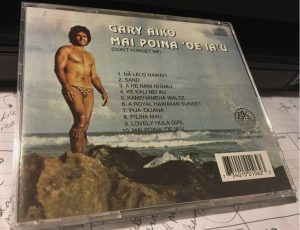
Aiko in his signature leopard Speedo for the back cover of his 1977 “Mai Poina ‘Oe Ia’u (Don’t Forget Me)” release, image from ebay.
Fun fact: Aiko paid to record and produce his 2012 album of popular and Hawaiian favorites, Poina ‘Ole ‘Ia (Unforgettable), with the money he won gambling in Vegas.
The musician started off playing bass and singing for Don Ho early on, and became well-known for his smooth, charming baritone — often being favorably compared to Alfred Apaka, (a comparison Aiko didn’t mind), striking personality, and warm aloha.
He loved to perform solo, with his Keawe Ohana, Alan Akaka and The Islanders, his brothers, his mother — most memorably in “The Hawaiian Wedding Song (Ke Kali Nei Au),” and other bands, sharing his music with the world, even playing Carnegie Hall in New York — twice — in 1998 with his mom, Aunty Genoa Keawe, and in 2004 with Iwalani Kahalewai, Nina Keali’iwahamana, and a few Hawaii Calls cast members.
When the McKinley High School grad wasn’t making an occasion out of any greeting and gathering, Aiko worked a day job at Hawaiian Electric for 43 years before retiring early when he was asked to start working nights.
In 2014, the Hawai’i Academy of Recording Arts (HARA) bestowed him with its “Lifetime Achievement Award” — well overdue.
“Gary was truly a unique person that lived by his values and beliefs,” according to good friend Noel Okimoto. “My time with Gary was with the Royal Hawaiian Band. He had the most beautiful baritone voice that would bring the exquisite Hawaiian melodies to life. He would then ‘rock the place’ with his rendition of ‘Hawaiian Cowboy.’
“Direct in his communication, he was warm, funny, and caring. Physically strong, he would help the percussion section with our gear, carrying the timpani by himself. A testament to his 40-plus years as a Hawaiian Electric linesman. Gary had a wonderful soul… He will be missed.”
A long-time union member from way back, Aiko came from a family of impactful Hawaiian artists who, in their own right, left lasting impressions on entire generations — most notably his mother, the late Aunty Genoa Keawe — known for introducing her Hawaiian falsetto to countless fans outside the islands.
Gary Aiko passed away on July 14 of this year at the age of 90.
— Carol Banks Weber
WATCH:
- Aunty Genoa Keawe having good fun with her family, including sons Gary, Eric, and Arthur, for a rousing Kanikapila. YouTube video c/o PBS Hawaiʻi. youtu.be/3_Ve26zfmzQ?si=Cm58YZBvJiyGjURx
- Gary Aiko’s 2012 Poina ‘Ole ‘Ia (Unforgettable) album, featuring his sumptuous baritone youtu.be/8S0gLs-RKMw?si=OKmzbLrBAXGRorNg
From the Fall 2025 issue, Ke Ola O Na Mele
